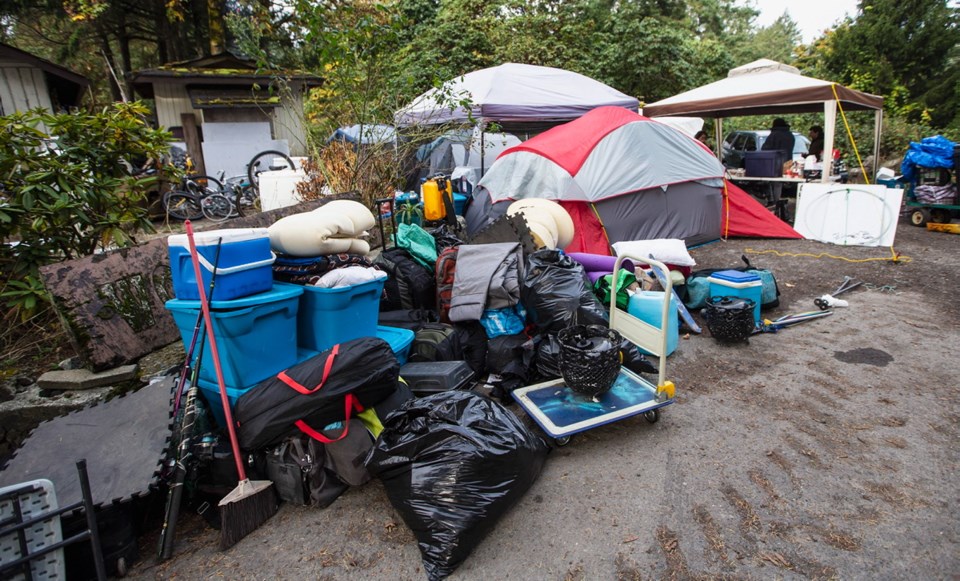Re: “Campers arrested at Woodwynn Farms,” Oct. 21.
Last week, the story of Camp Namegans residents and their recent eviction and arrest at Woodwynn Farms was not front-page news. Instead, municipal-election results captured the front page.
It was good to see that the majority of councillors elected in the City of Victoria support either comprehensive housing that includes low-income housing or the building of low-income housing. This bodes well for the next four years.
However, municipal governments alone cannot end homelessness. Our city council, along with regional, provincial and federal governments, have acquired more than $90 million for Housing First in our community to address homelessness. Housing First has long been supported as a solution to homelessness in Victoria and is foundational to the Greater Victoria Coalition to End Homelessness plan for addressing homelessness.
As citizens, if we want to end homelessness, we have to support affordable-housing developments. So, saying yes to affordable developments instead of no. Housing that is truly affordable costs no more than 30 per cent of one’s income.
Everyone wants to end homelessness, but not everyone wants affordable housing developments in their community. I live in a neighbourhood with low-income housing. I feel proud to live on a street with individuals and families of many different income levels and backgrounds. I have seen my neighbours support developments that are affordable, with attention to traffic, height and density.
Everyone has the right to safe and affordable housing. International human rights codes endorse the right to housing. Many Canadians support the right of all citizens to housing and there is a national movement led by the Canadian Alliance to End Homelessness to legislate the right to housing.
The UN Special Rapporteur on Right to Adequate Housing has described homelessness as an extreme violation of human rights to adequate housing and non-discrimination and often violation of rights to life and health. As result of societal conditions such as lack of investment in housing, colonization (the Indian Act, residential schools, the ’60s scoop) and loss of the social safety net, some people are more vulnerable to homelessness and by extension more subject to discrimination.
For example, Indigenous people make up four to five per cent of the population in Victoria and are disproportionately represented among those who are homeless in our community (more than 33 per cent) as evidenced by the 2018 point-in-time count.
Worldwide, instead of tackling the root causes of homelessness, governments are more likely to target people who are homeless through policing, restrictive laws and criminalization. Amnesty International concluded that governments are criminalizing people who are homeless to take attention away from their own failures. This is an international problem occurring around the world and right here in our community. It is a problem that is perpetuated by media and public stereotypes of homelessness.
When people are being chased from community to community because they are homeless and repeatedly criminalized for attempting to find a safe place to live as a community, we are failing. Although Camp Namegans is a small group, they are fighting for the right to affordable housing, bringing into sharp relief that homelessness is happening now and that we need acceptable immediate and long-term solutions beyond shelters and the promise of housing.
Telling someone who is homeless to wait for housing is not a solution to homelessness. Treating homelessness and poverty as a crime is the wrong financial investment and fails to recognize the evidence as to what works to end homelessness.
Over the next four years, I urge every municipality to ask how they will work with people who are homeless and increase the supply of affordable housing in their community. I urge communities to learn more about the underlying forces that perpetuate homelessness, call for increases in the affordable-housing supply and support rights to housing.
If we do that, four years from now, we will have made progress.
Bernie Pauly is a professor in the School of Nursing and a scientist at the Canadian Institute for Substance Use Research at the University of Victoria.



